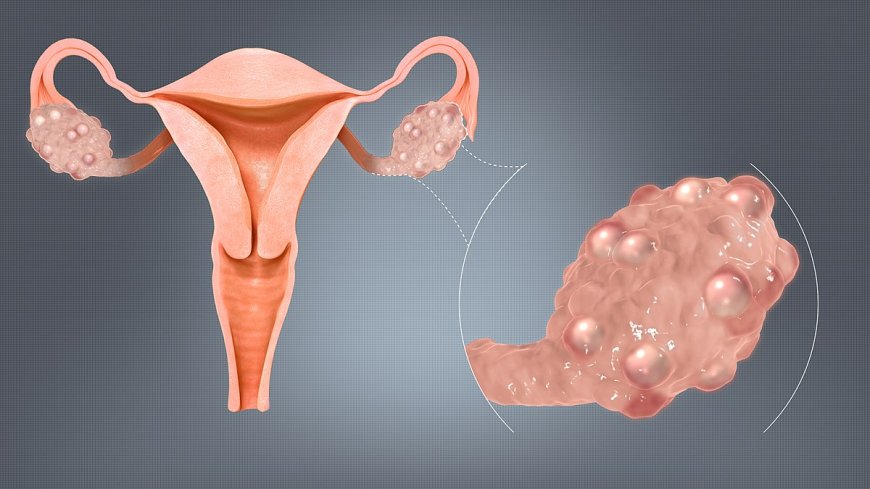PCOS and Metabolic Health: Exploring Natural and Scientific Approaches
Explore effective natural and scientific strategies to manage PCOS and enhance metabolic health, including diet modifications, exercise, supplements, and medical treatments.

Polycystic Ovary Syndrome (PCOS) is a complex hormonal disorder affecting approximately 5-10% of women of reproductive age. Characterized by irregular menstrual cycles, elevated androgen levels, and polycystic ovaries, PCOS often intertwines with metabolic challenges such as insulin resistance, obesity, and dyslipidemia. Addressing both reproductive and metabolic aspects is crucial for effective management. This article delves into both natural and scientific strategies to enhance metabolic health in women with PCOS.
Understanding the Metabolic Challenges of PCOS
Women with PCOS frequently experience insulin resistance, where the body's cells become less responsive to insulin, leading to elevated blood glucose levels. This condition not only exacerbates reproductive symptoms but also increases the risk of developing type 2 diabetes and cardiovascular diseases. Therefore, improving insulin sensitivity is a cornerstone in managing PCOS-related metabolic issues.
Natural Approaches to Managing PCOS
1. Dietary Modifications
-
Embrace a Balanced Diet: Incorporating a diet rich in whole grains, lean proteins, healthy fats, and ample fruits and vegetables can aid in weight management and improve insulin sensitivity. The Mediterranean diet, known for its anti-inflammatory properties, has shown promise in alleviating PCOS symptoms.
-
Monitor Carbohydrate Intake: Focusing on low glycemic index (GI) carbohydrates helps in regulating blood sugar levels. Opting for complex carbs like quinoa, brown rice, and legumes can prevent insulin spikes.
2. Regular Physical Activity
-
Incorporate Aerobic Exercises: Activities such as brisk walking, cycling, or swimming enhance insulin sensitivity and assist in weight control.
-
Strength Training: Building muscle mass through resistance exercises can boost metabolic rate and improve glucose metabolism.
3. Weight Management
Achieving and maintaining a healthy weight can significantly impact insulin resistance and hormonal balance. Even a modest weight loss of 5-10% has been associated with improved menstrual regularity and ovulation.
4. Stress Management
Chronic stress can exacerbate hormonal imbalances. Incorporating stress-reduction techniques such as mindfulness meditation, yoga, or deep-breathing exercises can positively influence both mental and metabolic health.
5. Adequate Sleep
Prioritizing quality sleep is essential, as sleep disturbances can worsen insulin resistance and increase cravings for high-sugar foods. Establishing a regular sleep schedule and creating a restful environment can be beneficial.
Scientific Approaches to Managing PCOS
1. Pharmacological Interventions
-
Metformin: Commonly prescribed for managing insulin resistance, metformin improves the body's response to insulin and can aid in restoring regular menstrual cycles.
-
Clomiphene Citrate: Often used to induce ovulation in women facing infertility due to PCOS.
2. Nutritional Supplements
-
Inositol: This naturally occurring compound has shown potential in improving insulin sensitivity and promoting ovulation. Studies suggest that inositol supplementation can be beneficial for women with PCOS.
-
Vitamin D and Calcium: Deficiencies in these nutrients are common in women with PCOS. Supplementation may aid in improving menstrual regularity and metabolic parameters.
3. Herbal Remedies
Certain herbs have been studied for their potential benefits in managing PCOS symptoms:
-
Cinnamon: May improve insulin sensitivity.
-
Turmeric: Known for its anti-inflammatory properties, it may help in reducing systemic inflammation associated with PCOS.
It's essential to consult with a healthcare provider before starting any herbal supplements to ensure safety and appropriateness.
Integrating Approaches for Optimal Health
Combining natural lifestyle modifications with scientific treatments offers a comprehensive strategy for managing PCOS. Personalized plans, developed in consultation with healthcare professionals, can address individual symptoms and health goals effectively.
Conclusion
Managing PCOS and its associated metabolic challenges requires a multifaceted approach that blends natural lifestyle changes with evidence-based medical treatments. By adopting a balanced diet, engaging in regular physical activity, managing stress, and utilizing appropriate medical interventions, women with PCOS can improve their metabolic health and overall quality of life.
What's Your Reaction?
 Like
0
Like
0
 Dislike
0
Dislike
0
 Love
0
Love
0
 Funny
0
Funny
0
 Angry
0
Angry
0
 Sad
0
Sad
0
 Wow
0
Wow
0



















































